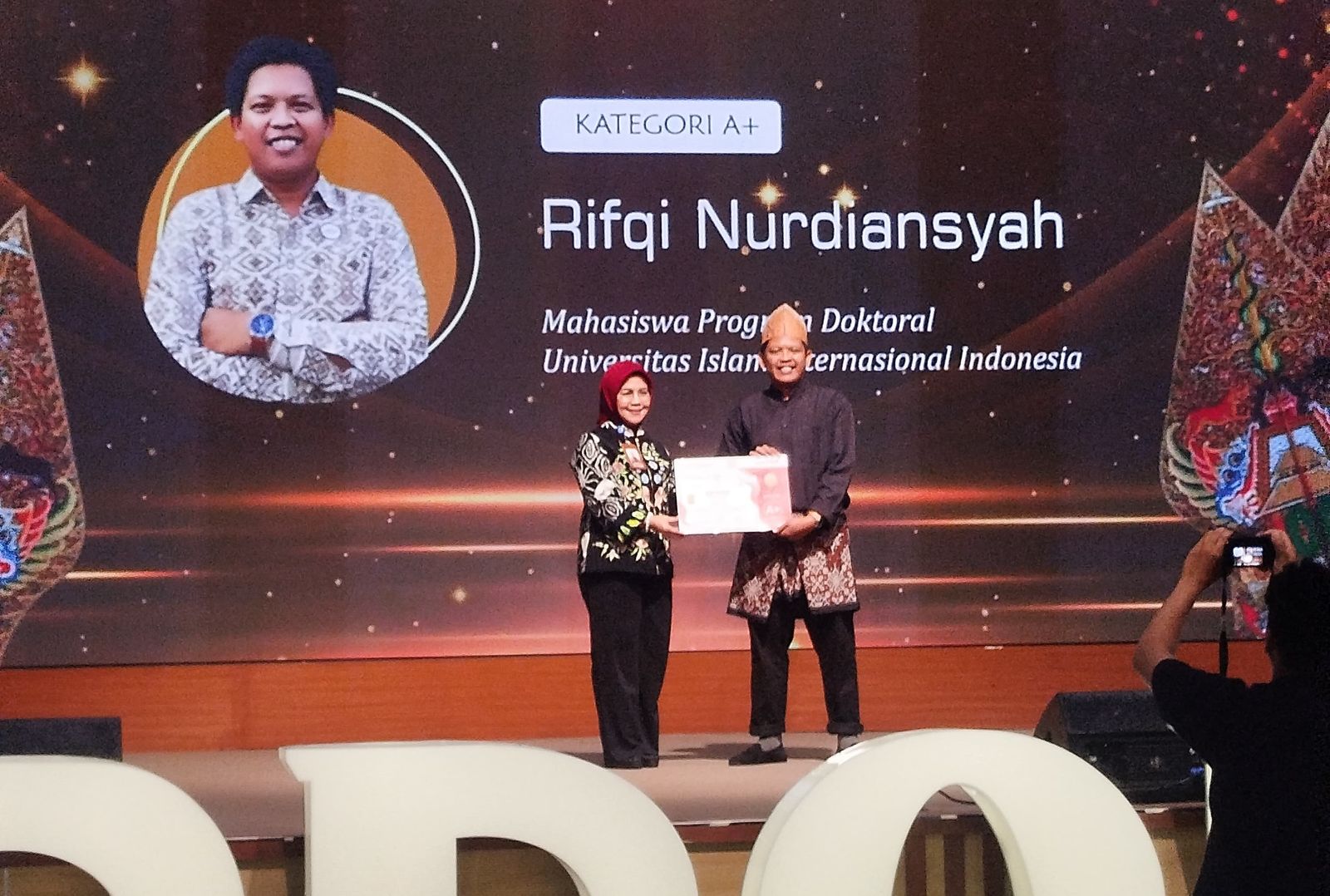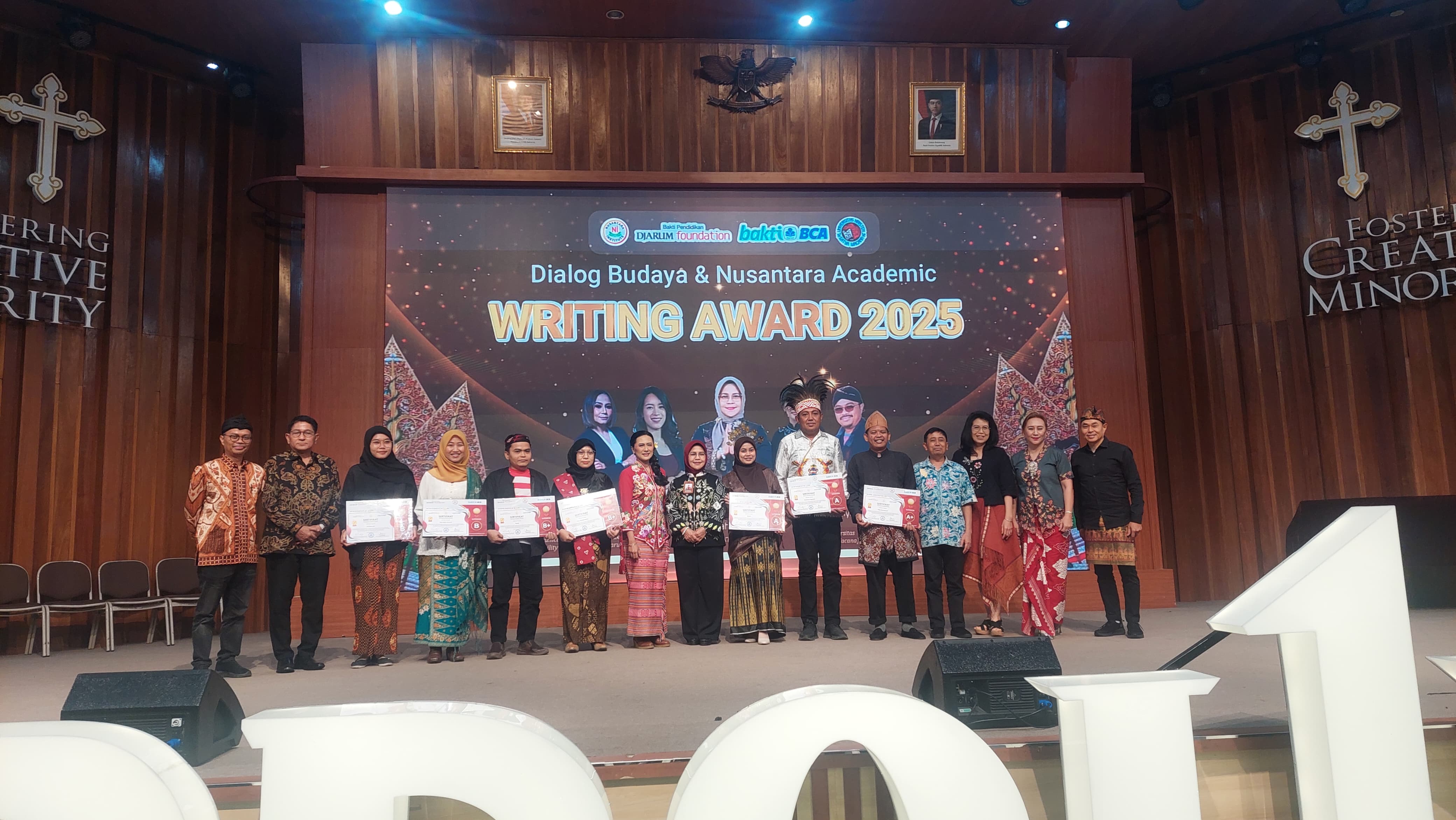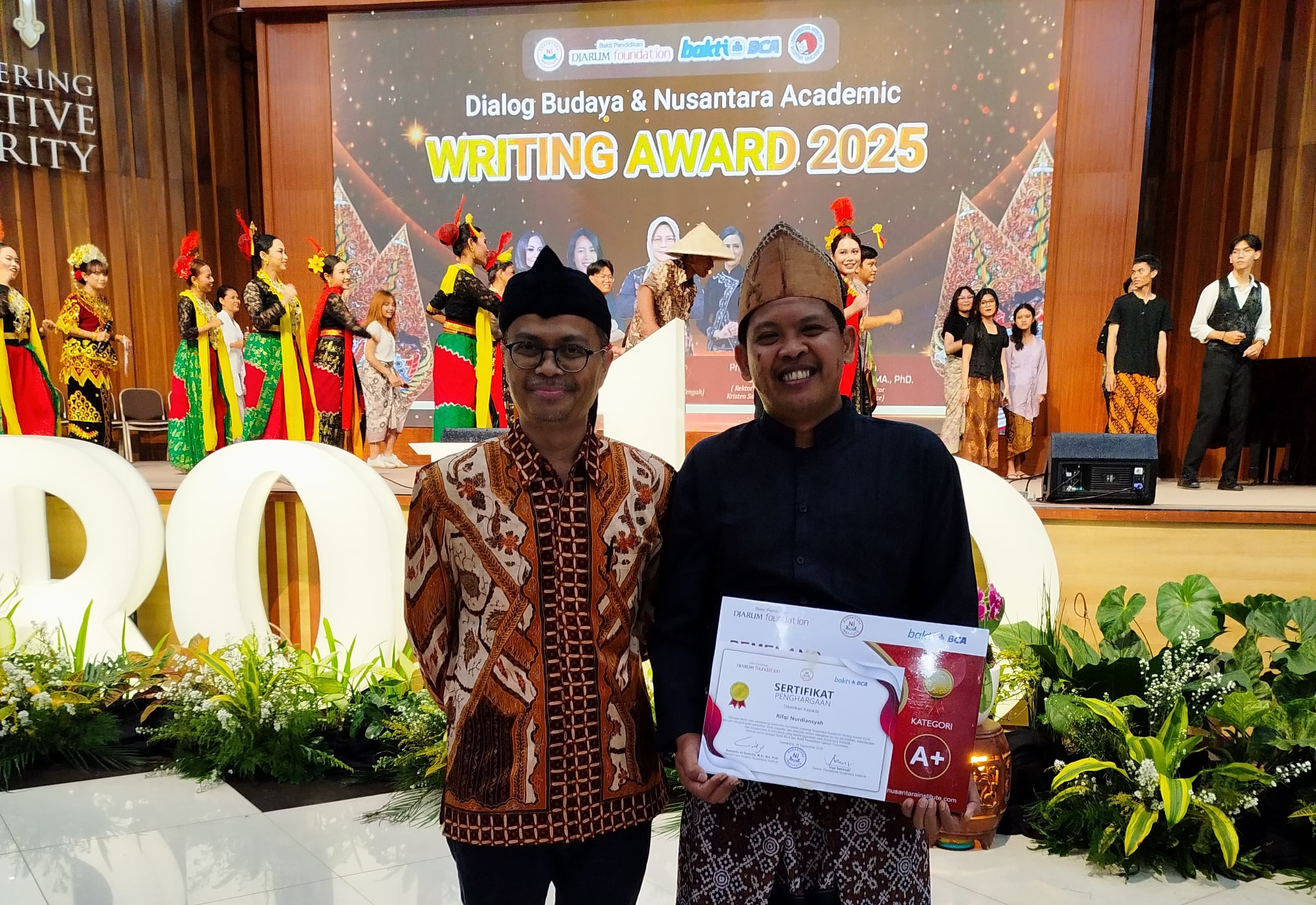October 1, 2025
Contributor: Supriyono | Photo: Rifqi Nurdiansyah

Rifqi Nurdiansyah, a PhD candidate from the Faculty of Islamic Studies, Universitas Islam Internasional Indonesia (UIII), has been named the Best Awardee at the Nusantara Academic Writing Award (NAWA) 2025, organized by the Nusantara Institute with support from Bakti BCA and Bakti Pendidikan Djarum Foundation.
Rifqi stood out among seven finalists from across Indonesian universities, becoming the only participant to receive the prestigious A+ rating from the jury. His dissertation, “Islamic Hybridity and Meaning-Making of Islam in Indonesia: Islam Langkah Lama of the Talang Mamak Tribe”, introduces the concept of “Islam Hibrida” (Islamic Hybridity) as an alternative framework to the often-problematic notion of “syncretic Islam.”
“My research connects the local case of the Talang Mamak community in Riau with broader academic debates. The theme I propose is Islam Hibrida (Islamic Hybridity) as an alternative to the problematic idea of Islam Sinkretis (Syncretic Islam).”
 Through the case of Talang Mamak indigenous group in Riau, Rifqi challenges conventional views that label local practices as “syncretic” and therefore heretical. Instead, he argues that hybridity offers a more inclusive framework to understand Indonesia’s diverse Islamic traditions.
Through the case of Talang Mamak indigenous group in Riau, Rifqi challenges conventional views that label local practices as “syncretic” and therefore heretical. Instead, he argues that hybridity offers a more inclusive framework to understand Indonesia’s diverse Islamic traditions.
“The Talang Mamak case is just an entry point. What I really discuss is how Islam today has many different traditions, and debates often revolve around who is ‘most authentic.’ My strength was in linking this local narrative to larger scholarly discussions, which I think became a plus for my dissertation,” he explained.
Since its launch in 2019, NAWA has become one of Indonesia’s most competitive post-research writing grants for theses and dissertations. Every year, 150–200 applications are reviewed by a panel of more than 18 prominent scholars, with only a handful selected as awardees.
 The 2025 edition, themed Dialog Budaya dan Nusantara Academic Writing Award, took place at Satya Wacana Christian University (UKSW), Salatiga, marking the program’s first collaboration with a university partner. Alongside Rifqi, six other scholars were recognized for their research spanning topics of religion, culture, and local traditions.
The 2025 edition, themed Dialog Budaya dan Nusantara Academic Writing Award, took place at Satya Wacana Christian University (UKSW), Salatiga, marking the program’s first collaboration with a university partner. Alongside Rifqi, six other scholars were recognized for their research spanning topics of religion, culture, and local traditions.
According to Sumanto Al Qurtuby, PhD, founder and director of the Nusantara Institute and chair of the jury, the award aims to encourage young academics to complete their graduate and doctoral work while contributing to the preservation and critical study of Indonesia’s cultural and religious heritage.
The awardees not only receive research grants and certificates but are also invited to participate in Nusantara Institute’s wider projects, including book publications, webinars, and community-based programs.
Rifqi’s achievement not only marks his personal milestone but also reaffirms UIII’s commitment to nurturing globally competitive scholars whose research contributes to the critical understanding of Islam, culture, and society in Indonesia and beyond.
Universitas Islam Internasional Indonesia